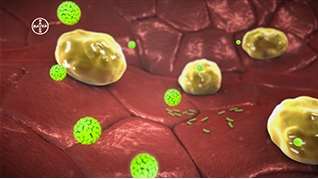Bayer Animal Health announces results from a clinical field study for the performance of Zelnate DNA Immunostimulant on arrival with modified live viral (MLV) vaccine on arrival or delayed.

Goals for the study were to examine how Zelnate may improve health and performance outcomes when used on arrival, and to observe the potential benefits of delaying the MLV vaccine until after initial stress and Mannheimia haemolytica challenges are experienced.
Key study results are as follows:
- At the conclusion of the study, Zelnate significantly reduced overall mortality at every measured time frame (60 days, 116 days and close-out), regardless of whether the MLV vaccine was administered on arrival or MLV delayed 30 days.
- Zelnate significantly reduced BRD mortality at 60 days (with a 30.2 percent reduction in total mortality and a 28.4 percent reduction in BRD mortality) and 116 days (with a 31.5 percent reduction in total mortality and a 27.5 percent reduction in BRD mortality) compared to calves not treated with Zelnate. Zelnate followed the same trend at close-out.
- Although not statistically significant, Zelnate showed a trend in reducing the BRD case fatality rate throughout the study.
- Delaying the MLV significantly reduced second BRD treatments at all three time frames, and significantly reduced BRD re-treatment risk at 116 days and close-out.
“Because BRD remains such a challenge in the cattle industry, Bayer is focused on finding new and innovative ways to attack this devastating disease,” says Jim Sears, senior technical services veterinarian, Bayer Animal Health. “That includes looking at how recently developed products, such as Zelnate, can be used in different ways and at different stages in a producer’s BRD prevention and treatment protocol.”
Click here to see more...